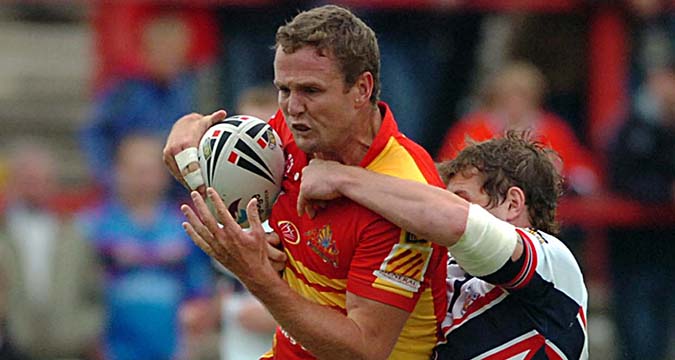 Mark Hughes won Grand Finals with Newcastle Knights in 1997 and 2001. He signed for Catalans Dragons and in their opening-night win over Wigan in 2006, he scored the French club’s first-ever try. He was diagnosed with brain cancer in 2013 and now focuses on his eponymous foundation, which has raised nearly $30 million.
If you could relive on
Mark Hughes won Grand Finals with Newcastle Knights in 1997 and 2001. He signed for Catalans Dragons and in their opening-night win over Wigan in 2006, he scored the French club’s first-ever try. He was diagnosed with brain cancer in 2013 and now focuses on his eponymous foundation, which has raised nearly $30 million.
If you could relive on Rugby League Heroes: Mark Hughes
 Mark Hughes won Grand Finals with Newcastle Knights in 1997 and 2001. He signed for Catalans Dragons and in their opening-night win over Wigan in 2006, he scored the French club’s first-ever try. He was diagnosed with brain cancer in 2013 and now focuses on his eponymous foundation, which has raised nearly $30 million.
If you could relive on
Mark Hughes won Grand Finals with Newcastle Knights in 1997 and 2001. He signed for Catalans Dragons and in their opening-night win over Wigan in 2006, he scored the French club’s first-ever try. He was diagnosed with brain cancer in 2013 and now focuses on his eponymous foundation, which has raised nearly $30 million.
If you could relive on 